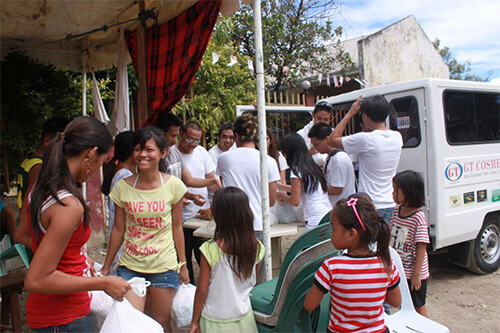Community Science Workshops
 The Community Science Workshop (CSW) is a framework of engagement based upon
the European Union’s “Science Shops,” that pair scientists and community members to identify or discuss research needs, co-frame research questions, and design scientifically rigorous community-based research projects to inform public
and public health policy. Since 2008, we have conducted 27 CSWs across the Gulf Coast, with an overall attendance of 1860. The ITS used a CSW framework to plan and develop a Community-Based Participatory Research (CPBR) program following the 2010
Deepwater Horizon disaster and subsequent oil spill, organizing a series of CSWs involving > 20 community organizations to discuss human health concerns related to consumption of seafood exposed to oil
The Community Science Workshop (CSW) is a framework of engagement based upon
the European Union’s “Science Shops,” that pair scientists and community members to identify or discuss research needs, co-frame research questions, and design scientifically rigorous community-based research projects to inform public
and public health policy. Since 2008, we have conducted 27 CSWs across the Gulf Coast, with an overall attendance of 1860. The ITS used a CSW framework to plan and develop a Community-Based Participatory Research (CPBR) program following the 2010
Deepwater Horizon disaster and subsequent oil spill, organizing a series of CSWs involving > 20 community organizations to discuss human health concerns related to consumption of seafood exposed to oil
This led to development of a consortium and $7.85 M NIEHS-funded proposal (Croisant, Co-PI), the Gulf Coast Health Alliance: health Risks related to the Macondo Spill (GC-HARMS) study. The Alliance included multi-disciplinary, multi-institutional
academic partners and involvement of six Gulf Coast communities. GC-HARMS enrolled >400 individuals for a longitudinal study to monitor the health of subsistence fishing communities impacted by the spill. Outcomes included the purchase and use
of a mobile clinical research unit currently in use today, the appointment of Croisant to a NASEM Committee on Large Scale Disasters, and the recognition of UTMB as a leader in the NIEHS initiative in Disaster Research Response. CSWs provide an ideal framework for establishing research
partnerships between REACH work groups and ITS scientific research teams to identify and prioritize community health needs and develop research questions and projects responsive and relative to needs for population health research.